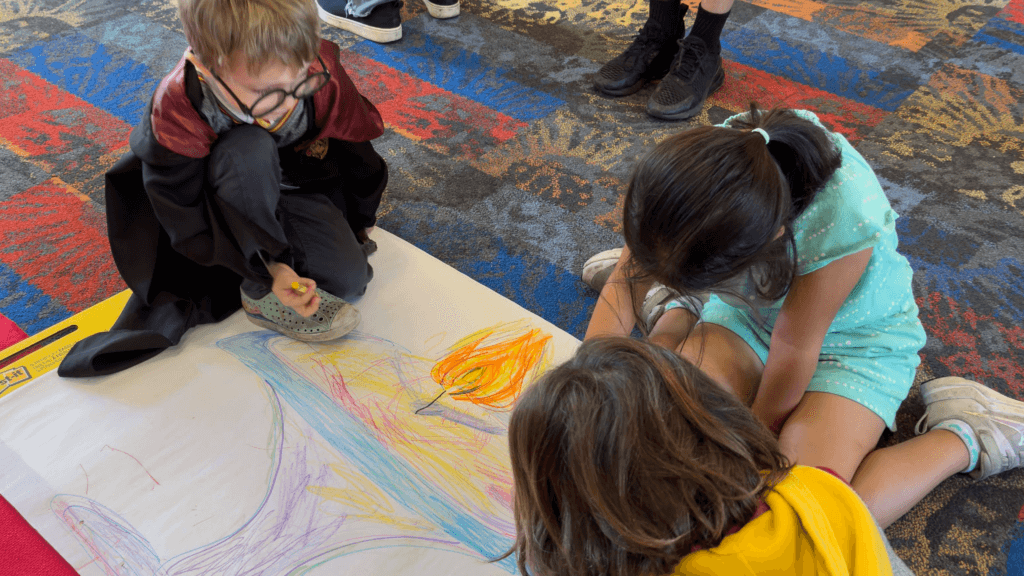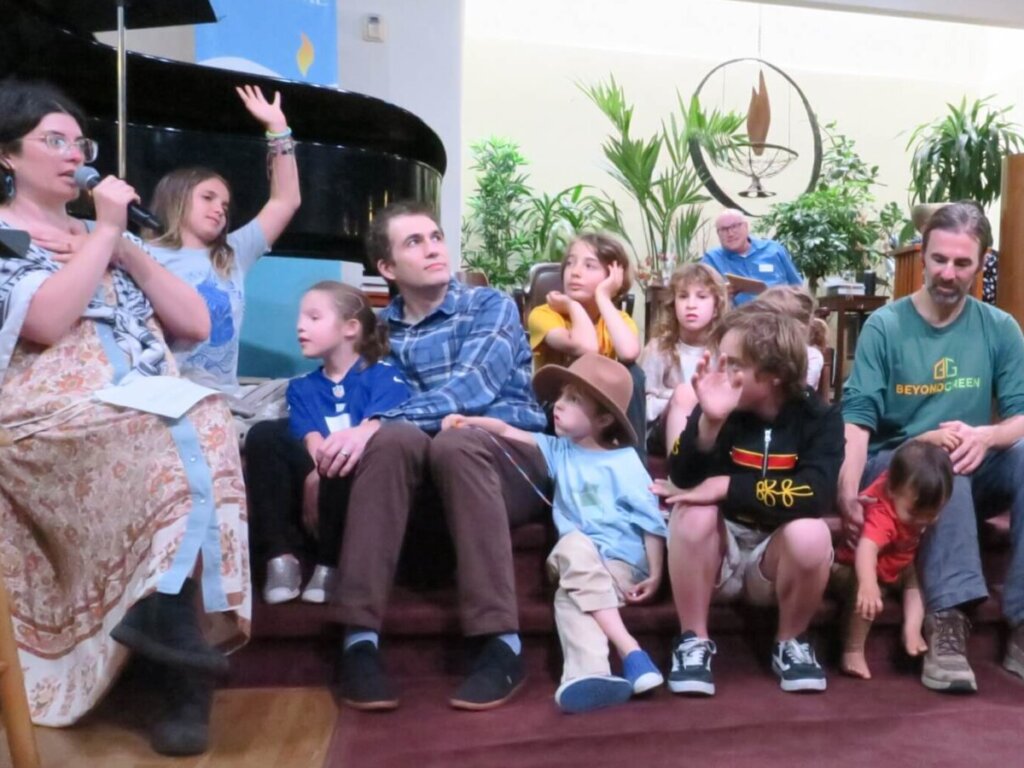Coming of age rites are practiced in many cultures, each with its own characteristics and traditions. Many peoples celebrate the transition from childhood to youth to adulthood, and in some cultures to advanced age. The traditions that you might be familiar with are Bar/Bat Mitzvahs, Confirmation, Quinceañera, Debutante, and Vision Quests. What they all have in common is acknowledgment of a child’s passage into maturity, responsibility, and spiritual commitment. Commitments that young persons are now consciously developing as they mature.
Our UUSM community is excited once again to offer the Coming of Age program to young people in grades 7, 8, and 9 to welcome them into their youth-hood, a stage that still requires support, guidance and boundary exploration with parents and guardians—and where appropriate, the community at large. The goal is to help young people sort out their ethical and religious identity (recognizing that some do not feel religious or belonging). Rather than asking a young person to affirm a given creed, we ask them to think carefully about what they hold to be true, and the values that guide their choices.
Coming of Age acknowledges early and middle adolescence, using the Seven Principles of Unitarian Universalism to explore self-worth, shared family faith/religion/beliefs, community responsibility, and social justice. We help them explore ways to identify and practice how they will make daily decisions and find their places in their community and the wider world.
UUs are unified by our shared search for spiritual growth. COA helps young people make intentional decisions about the kind of people they want to become. With the focus on the fun.
We want participants to explore and enjoy, and to bond with a group of young people who share similar values. This is a personal journey made alongside peers. The group shares their variety of perspectives and practices, embracing their individual beliefs alongside others of different faith traditions. Ultimately, our youth learn that their spiritual identity develops and matures with intellectual and social growth. It’s a lifelong personal journey that can be often shared with others. Young people also learn to use the guiding principles and sources of Unitarian Universalism to discern their own truth as it evolves. Questioning and articulating their own ethical and religious identity through the arts, spoken word, listening, etc.
Leaders and Mentors
The adult leaders of this year’s COA program are members of our UUSM community. Some will have backgrounds in UU theology, science, and other community faiths. All are members of the church and may be participating on a variety of committees and affinity groups. They will bring diverse identities, including gender, age, ethnicity, religious outlooks, abilities, and life experience. The adult leaders run the program and assist students in obtaining and working with a mentor, if the student desires. Leaders organize and supervise field trips and moderate discussions with guest speakers. The most important role of an adult leader is to bring an open heart and safe presence to each meeting.
The COA Program
The program combines experiences, personal reflection, artistic expression, and discussion. There are specific topics assigned, but if a topic piques intense discussion, we can allot additional time. We will emphasize being present in a spiritual community and the personal meaning of attending and participating as a practice or tradition. The youth will drive group projects, and the community service project is always a highlight. There will be at least one weekend retreat, and more if time allows.
COA will meet once a month from October 2022 until the end of January 2023, twice a month from February thru March, and then weekly April thru May. The semester culminates with a youth-led Service of Recognition in May, crafted under the guidance of the minister and leaders.
Generations of youth have found the Coming of Age program both fun and meaningful. The tools we provide to help them grow in self-knowledge last a lifetime. And the time spent with youth and adults who share similar values provides additional strong adult role models, at a time in life when that’s what many young people are looking for.





